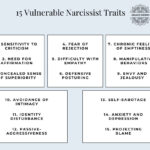What Is Spiritual Counseling? Exploring The Path To Inner Transformation
Have you ever found yourself pondering the profound questions of life, seeking guidance, or searching for a deeper sense of meaning and purpose? If so, you may have come across the term “spiritual counseling.” But what is spiritual counseling exactly?
In the following sections, we will dive into the key aspects, benefits, and transformative potential of counseling in spirituality, shedding light on this enriching journey of self-discovery and inner transformation.
We will also discuss the distinctions between therapy and spiritual counseling, highlighting their unique purposes.
What is spiritual counseling?
Spiritual counseling, also known as soul-centered coaching, is a dynamic and powerful process that honors the interconnectedness of the human experience. It recognizes that our spirituality plays a vital role in our well-being, guiding us towards personal growth, healing, and a greater understanding of ourselves and the world around us.
Through a combination of compassionate listening, introspection, and guidance, spiritual counseling assists individuals in exploring and expanding their consciousness, deepening their connection with their inner selves, and finding clarity, purpose, and fulfillment in their lives.
What are the benefits of spiritual counseling?

This practice offers a multitude of transformative benefits for individuals seeking personal growth and a deeper connection with their spirituality. These are the main benefits of counseling in spirituality:
- Profound self-exploration and inner growth
- Safe and supportive space to release limiting beliefs
- Healing and improved emotional well-being
- Finding clarity, purpose, and meaning in life
- Deepening spiritual connection with higher self and the Divine
- Sense of peace, fulfillment, and understanding of one’s place in the universe
- Increased self-awareness and recognition of unhealthy patterns
- Empowerment to make positive changes and cultivate healthier habits
- Integration of mind, body, and spirit for holistic well-being
- Creating a more fulfilling and purposeful life
- Cultivating a sense of inner peace and wholeness
Related: Is Spirituality Everything?
Exploring the distinction: religion vs. spirituality
Counseling in spirituality differs from focusing on a single religion in that it embraces a broader and more inclusive approach to exploring and understanding one’s spiritual beliefs and experiences.
It acknowledges that individuals may find spiritual meaning and fulfillment through different religious traditions, personal beliefs, or even outside of organized religion altogether.
Spiritual counseling provides a space for individuals to explore their own beliefs, values, and experiences in a non-judgmental and open-minded manner, encouraging personal growth, self-discovery, and a deeper connection with the transcendent and sacred aspects of life.
Related: How Long Does a Spiritual Awakening Last?
What is the difference between therapy and spiritual counseling?
The main difference lies in their primary focus and approach. Therapy, also known as psychological counseling or psychotherapy, primarily focuses on addressing mental and emotional health issues, psychological disorders, and improving overall well-being.
On the other hand, spiritual counseling places a greater emphasis on exploring and addressing the spiritual dimensions of a person’s life. It recognizes the importance of spirituality in one’s well-being and aims to provide guidance and support in matters of faith, meaning, and purpose.
Spiritual counseling encompasses a broader view of human existence, acknowledging the interconnectedness of mind, body, and spirit.
While this practice can be immensely beneficial for personal growth and exploring one’s spirituality, it is important to note that it should not be seen as a replacement for therapy, particularly when it comes to treating mental health illnesses.
Licensed psychotherapists possess specialized training and expertise in diagnosing and treating psychological disorders. They employ evidence-based therapeutic approaches to address specific mental health concerns, providing appropriate interventions and treatments.
Related: How To Find A Spiritual Mentor That Works For You
Who should seek spiritual counseling?
Spiritual counseling can be a valuable resource for individuals in various circumstances. It is particularly beneficial for:
- Those going through difficult situations: If you find yourself facing challenging life circumstances, such as leaving toxic relationships, changing careers, and major life transitions, seeking spiritual counseling can provide guidance and support during these times of upheaval.
- Individuals experiencing a spiritual awakening: If you have recently had a spiritual awakening or are going through a period of profound introspection and questioning, spiritual counseling can help you navigate this transformative journey, explore your newfound insights, and integrate them into your life.
- Those seeking to strengthen their faith and connect with God: If you desire a deeper connection with your faith and spirituality, counseling can provide the space and guidance to nurture your relationship with God and explore your beliefs, fostering a stronger connection with your higher self and the Divine.
- Individuals seeking personal growth and self-discovery: Whether you are on a quest for personal growth, self-discovery, or a deeper understanding of yourself and your life’s purpose, this practice can facilitate this process. It helps you explore your inner world, uncover hidden potentials, and cultivate a greater sense of meaning and fulfillment.
Remember, spiritual counseling is open to people from all backgrounds and belief systems who are seeking guidance, support, and a deeper connection with their spirituality.
Related: The Power of Spiritual Mentoring
FAQs
Spiritual counseling is a transformative practice that focuses on the spiritual dimensions of a person’s life. Through deep conversations, introspection, and guidance, it helps individuals connect with their spirituality and find clarity, healing, and a greater sense of fulfillment in life.
The main benefits include:
1. Guidance and support during difficult life situations
2. Support during spiritual awakenings
3. Strengthens faith and connection with God
4. Promotes personal growth and self-discovery
5. Fosters a meaningful and purposeful existence
Related:
What Is A Spiritual Awakening?
Spiritual Awakening Stages
Inner Wisdom
Spiritual Awakening Signs and Symptoms






